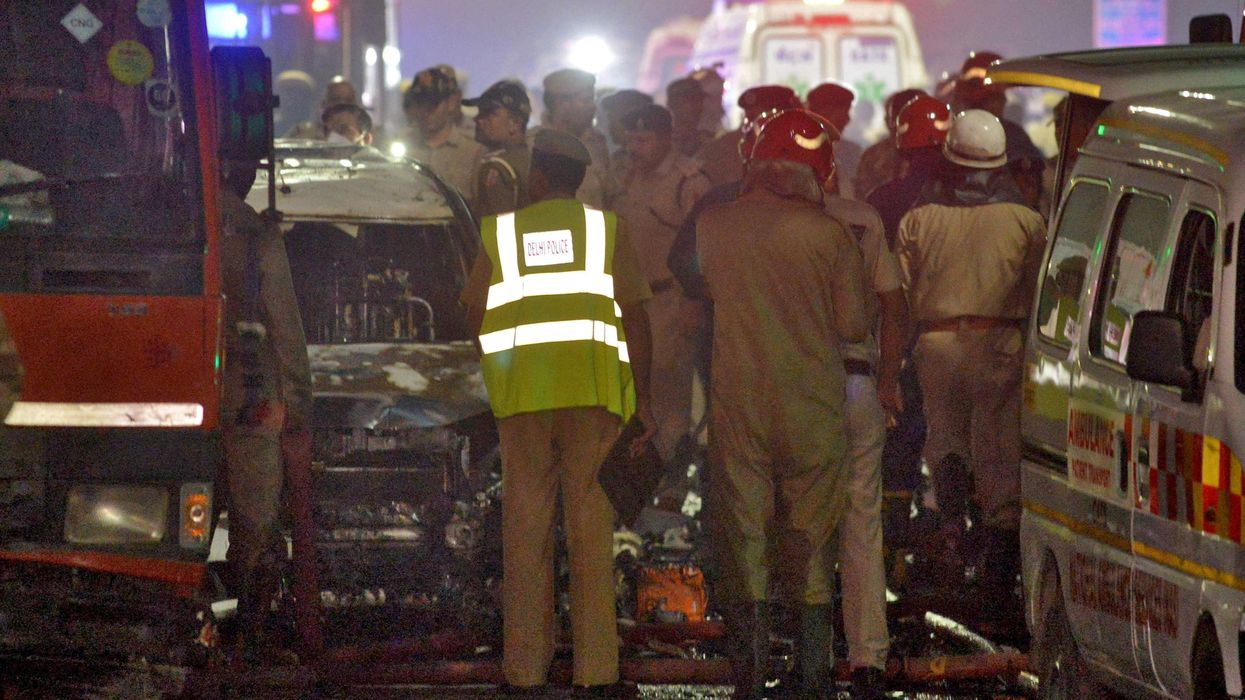Fear of the coronavirus and chronic pollution spoiled the party on Saturday as hundreds of millions of Indians celebrated the biggest Hindu holiday of the year.
Diwali is meant to be the festival of light, but the pandemic has clouded the future for many in the country of 1.3 billion.
Some people defiantly set off traditional firecrackers in Delhi in spite of a ban imposed because of sky-high pollution levels and markets were filled with holiday shoppers. But traders said Covid-19 had scared them off spending amidst the muted revelry.
With 8.7 million cases, India has the world's second-highest coronavirus infection count behind the United States. About 130,000 people have died since February and Delhi is going through a new surge with nearly 8,000 new cases a day, which experts have blamed on Diwali crowds.
Engineer Rahul Randhawa, 27, returned from the United States expecting to see a toned down Diwali but found "the total opposite".
"There are major jams on the street... and there are huge crowds in markets," he said.
However, the crowds are being selective. No crowds are allowed at sports events. Cinemas are open but remain empty. Restaurants say they are struggling to get people to come in.
- Lights off -
Mahinder Kumar, who sells flowers outside the Jhandewala temple, one of the oldest in Delhi, said that normally there are huge queues for Diwali. "This year it's nothing -- almost empty."
"Our business has been affected badly. We have hardly sold any flowers this year."
The eight weeks up to Diwali can account for 40 percent of some traders' annual business and it is considered an auspicious time to buy gold.
But the lights were off at Vineet Garg's gold and jewellery store near the central Connaught Place, despite an "open" sign on display.
"It is a waste of electricity to put the lights on," he said. "People are not buying in shops. The business I am doing is online. They are too worried to have fun."
In Mumbai, markets were bustling with shoppers buying lights and food but shopkeepers said sales were no better than on an average day.
"It is a dull Diwali," said Raju Harijan, 35, who has a food store in north Mumbai. "Usually every year, sales would peak now but this year, even survival has become tough."
Bank worker Sonam Choudhary acknowledged that people were "scared" of the coronavirus and "adjusting to the new normal". She said families would celebrate Diwali "with all the precautions".
Prime minister Narendra Modi, US president-elect Joe Biden and his deputy Kamala Harris, whose mother was Indian, were among world leaders to issue Diwali messages.
"May everyone be prosperous and healthy," Modi told his 63.5 million Twitter followers.
But the government is struggling to kick-start an economy that is expected to shrink by nearly 10 percent this year because of the pandemic crisis. Millions across the country have lost their jobs.
The government this week announced incentives worth more than $35 billion to boost employment, consumer demand, agriculture and manufacturing. Since May, it has spent about $300 billion on stimulus measures.
But Garg said there would be no point putting the lights on in his jewellery store until a coronavirus vaccine is available to all. "The new normal is all dark for now," he said.












